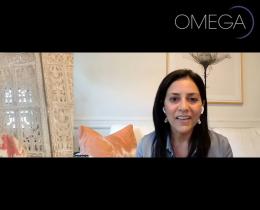Writing can be a great way to slow down and connect with your creative self. But what if you don't think of yourself as a good writer or don't know where to start?
You don't need to write the great American novel (or even have any skill as a writer) to benefit from Morning Pages, a practice created by Julia Cameron.
If you practice writing Morning Pages, you may (or may not) become a better writer, but you will probably notice you feel more creative, and you may see changes in other areas of your life, too.
Here's how it works: every day, first thing in the morning, write 3 pages of your thoughts down in a notebook.
You can write whatever comes to you. It doesn’t have to be high art or even good writing. In fact, the point is not to write something you share with others but rather to clear the clutter in your mind so that you can feel refreshed for the rest of your day.
Just let thoughts come up and then write them on the page in a stream of consciousness style.
"There is no wrong way to do Morning Pages,” Cameron writes on her website. “They are not high art. They are not even ‘writing.’ They are about anything and everything that crosses your mind—and they are for your eyes only. Morning Pages provoke, clarify, comfort, cajole, prioritize, and synchronize the day at hand. Do not over-think Morning Pages: just put three pages of anything on the page…and then do three more pages tomorrow.”
While it might seem like a waste of time to write work that won't be shared, Cameron insists that the practice has many benefits.
“Anyone who faithfully writes Morning Pages will be led to a connection with a source wisdom within," she writes in her book, The Artist’s Way. "When I am stuck with a painful situation or problem that I don't think I know how to handle, I will go to the pages and ask for guidance.”
Morning Pages, one of the main exercises from Cameron's book, is an important tool for reclaiming your creative self no matter what your creative medium.
Entrepreneur Chris Winfield admits that he thought the practice sounded crazy when he first learned about it.
“Morning Pages are one of these things that sound so simple that you don’t think they could ever work for you,” he writes. “One of the things that I have realized in life is that many of the best things are really simple, but our complicated minds want to tell us they won’t work for us.”
Winfield credits the practice with generating more creative business ideas, clarifying what’s most important in his life, and quieting his overactive mind.
Cameron says the pages work for everybody, not just writers.
“Lawyers who use them swear they make them more effective in court,” she writes in her book. “Dancers claim their balance improves—and not just emotionally.”
Are you ready to try the practice? Don’t worry if have some initial hesitation. “Often, the students most resistant to Morning Pages come to love them the best,” Cameron writes. “In fact, hating the Morning Pages is a very good sign.”
Learn more from Cameron's description of the practice.






